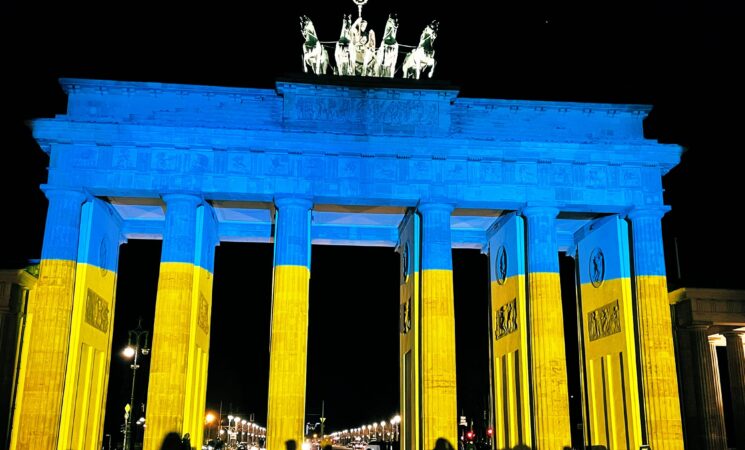15 April 2022, NIICE Commentary 7772
Krishnaveer Singh Chahar
History is replete with events that have shaped the world in sundry ways. The Second World War started the decolonisation of countries, Iran Revolution changed the course of West Asia, and the 9/11 attack heralded an era of war on terror. These events may not have much in common except the fact that they all have significantly shaped the world we live in. One such event might be the Russian invasion of Ukraine. It will influence the world politics at least for the foreseeable future. The impact of war is already visible in Germany. After the end of the Second World War, Germany followed a policy of pacifism, putting emphasis on diplomacy to solve issues rather than force. However, the war in Ukraine has busted the German bubble and made it recognise that the use of force in international politics has not lost its value.
The failure of diplomacy and invasion of Ukraine has forced Germany to recognise the cracks in European security. The war has shown that diplomacy can only go so far. If there is future aggression, Europe should be able to defend itself against Russia. Under this backdrop, Germany has announced major policy changes to better equip itself against the Russian threat. It has decided to set up a 100 billion euros fund for armed forces and to raise defence spending to more than 2 percent of GDP. However, it is yet to be seen whether Germany can stand against Russia. Germany has also shunned its earlier policy of not sending weapons to conflict zones and decided to provide weapons to Ukraine to fight the Russian invasion.
Another major change in German policy is the suspension of the certification process of the Nord Stream 2 gas pipeline from Russia. Furthermore, it has also signed a long-term gas supply deal with Qatar. It is a significant move, considering Germany imports more than 60 percent of natural gas from Russia. This move will help Germany to wean itself off Russian gas. Germany dependent on Russia for its energy needs, cannot stand up to Russian aggression. The move also signals that Russia’s actions will have consequences.
These policy changes are redefining German national security. However, one has to wait and watch whether these are long-term policy changes. The reorientation of Germany’s security policy will have wider implications for Europe and the world. The question we face today is, what will be the consequences if Germany pursues a militaristic policy? Will it create a more stable Europe or bring in an era of arms race? We can safely say that militaristic Germany will definitely help in strengthening the North Atlantic Treaty Organization (NATO). It will help improve European Security vis-à-vis Russia. However, militaristic German policy might end up creating more insecurity for Russia. An insecure Russia will always pose a threat to Europe unless some confidence-building measures are established. It will also be interesting to see the impact of German militaristic policy on Franco-German defence cooperation.
The increase in defence spending by Germany would achieve two objectives. First, it will contribute to European Security. Second, it will reduce the burden on the United States, which would want to turn its focus on Indo-Pacific to counter increasingly assertive China. Therefore, the reinvention of the German security policy is a significant move. It strengthens the west and shows that it is united against those who flout international norms. However, it all depends on whether it can sustain these policy changes and its implications.
Krishnaveer Singh Chahar is a Postgraduate Student at Jamia Millia Islamia, India.

